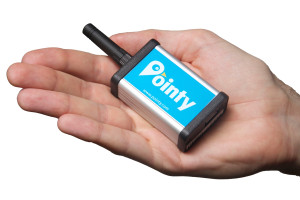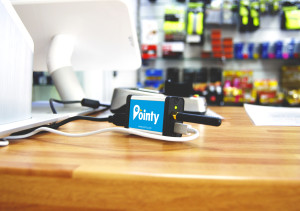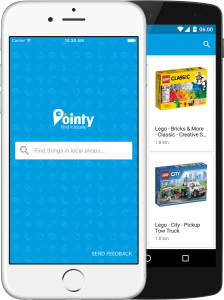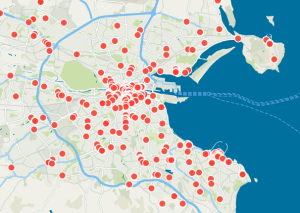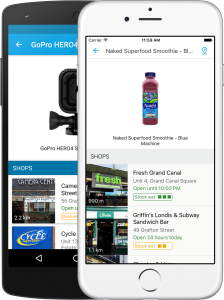Two and a half years ago I left Google and set out to build a new kind of search engine. This may sound a little crazy, but all the best things are like that :-)
We’ve been avoiding the tech press and trying to build things quietly, but this week we’re launched our user-facing app. I’m really proud of what the team has built, so it’s exciting to finally be able to say a bit more about it.
The problem we’ve been working on is finding specific items locally. For example, a light bulb just broke and it’s a strange fitting, where’s the nearest place you can get a new one? Or you’re half way through a recipe and realise you’re missing an ingredient – where do you get it?
Existing search engines do a really bad job of answering questions like this. The reason is that, in order to provide a good answer, you need to know what products are stocked in all the local shops. It turns out that nobody has this data – not even the shops themselves in many cases. It’s kind of strange to think that you can search the entire internet in a fraction of a second, but the contents of the shop around the corner remains a mystery unless you go there in person. But that’s the state of the world in 2015. At Pointy we’ve been working on solving that problem.
So let us introduce the Pointy box:
The Pointy box is a piece of hardware we designed, which essentially connects a shop’s barcode scanner to their Pointy web page. When the shop scans a product, it gets listed on the web page instantly. How it all works is illustrated on our retailer signup page.
The Pointy box looks simple, but we had to solve some very hard technical problems to make it a “just works” experience for every store in the world. We can support basically any piece of equipment we find in the wild1, everything from ancient cash registers that look like they belong in a Western, right up to iPad based systems. A lot of creativity went into making that possible.
From the retailers’ point of view, it’s extremely simple. They just plug in the box and within a few minutes they have a nice website for their shop, which automatically lists everything they sell. They’re also part of the Pointy local search app. There’s no extra work and no configuration, it just fits in with their existing systems.
Happily, retailers seem to love this. We started to roll it out widely in June this year, and by December roughly 1 in 8 of all shops in our launch city (Dublin, Ireland) are using the system.
There’s a vast variety of shops now on the platform, basically the whole range of local shops: bike stores, pharmacies, hardware, convenience, pet shops, delis, supermarkets, wine stores, toy shops, book stores, garden centres, even horse supply shops. There’s a huge data challenge in identifying the right name and picture to go with a barcode, and that actually occupies a big chunk of our engineering team, but that’s a topic for another post.
Infrastructure
Our system is built on Google Cloud Platform, which has let us scale quickly without having to spend time on non-core problems. I built my last startup on AWS, so it was a little bit of a change to use Google Cloud this time around. However, it’s been a really great choice. It gives us a beautiful combination of scale and agility. We deploy to production often multiple times per day, which is extremely easy with the GCP tools. This lets us iterate rapidly, and focus on our product rather than system administration. I suppose when you’re building a search engine, using Google’s infrastructure seems like an obvious choice :-)
What’s Next
It’s been a great experience so far, but we’re not close to the end. There’s still a long way to go to connect every shop on the planet, after all. We’re getting there, and having fun along the way. If you’re interested, we’re always looking for good people.
Footnotes
- There’s always a few exotic ones that aren’t worth the trouble, but for practical purposes it might as well be 100% coverage. ↩
